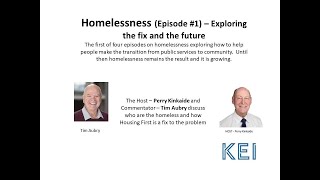
Bent But Not Broken
- The Unyielding Human Spirit in the Face of Adversity - see also Troy Media HERE
In the face of calamity, whether personal or communal, the phrase "bent but not broken" resonates with profound truth. Our lives are peppered with adversities from the moment we draw our first breath until we take our last. While these challenges can humble and humiliate us, they rarely break us completely. The resilience of the human spirit ensures that we rise once more, determined and unbowed.
This past week, the indomitable nature of the human spirit was tested by a series of catastrophic events. A devastating inferno ravaged much of Jasper, wildfires scorched vast swathes of California, and torrential floods wreaked havoc across the globe. These disasters underscore the precarious relationship between man and nature, a partnership fraught with tension and unpredictability.
Climate change is often blamed for these extremes of drought and deluge. Indeed, extreme changes challenge our ability to adapt, anticipate, and protect ourselves. While our capacity for resilience is formidable, it is not limitless. Nature, with its unpredictable fury, can humble and, at times, break us. The fires in Jasper, Slave Lake, and Fort McMurray are stark reminders of nature's dominion and the costs it exacts. Despite our best efforts—firebreaks, controlled burns, insurance, and fire brigades—sometimes nature's wrath is simply unstoppable.
In our daily lives, we confront another form of adversity: the interminable wait. From call centers to healthcare services, and public utilities, the scourge of waiting has become a ubiquitous frustration. The Canada Revenue Agency's recorded message advising a wait time of two-and-a-half to three hours, and Telus's customer service line holding callers for up to six hours, are emblematic of a system that appears indifferent to individual needs. This widespread issue transcends sectors, affecting healthcare, telecommunications, and beyond, with the common refrain of "current demand exceeding expectations."
Many of us have become adept at navigating these obstacles: hanging up on unsolicited charity calls, silencing the barrage of advertisements on our phones, and recording TV programs to skip through excessive commercials. Even our grocery habits reflect this shift, as the price of a steak becomes prohibitive for the average middle-class family.
We are inundated with messages that claim our importance, yet the reality is that suppliers and service providers are manipulating supply and demand. Recent revelations of price-fixing in the bread industry, exorbitant gasoline prices, soaring realtor fees, and relentless credit card charges highlight the systemic issues plaguing consumers. The cumulative wait times and inefficiencies are not just inconveniences; they are eroding our productivity and quality of life.
Governments have been warned about the impending crises: forest fires, the collapse of healthcare under the weight of an aging population, and the unsustainable burden of taxation. Yet, the response has been tepid at best. What we need is not just acknowledgement, but action—more competition, better regulation, and stringent penalties for those who exploit the system.
The human spirit, though bent by these challenges, remains unbroken. It is time for a change. We must demand more from our suppliers and service providers, insisting on a system that values efficiency, fairness, and care. Only then can we ensure that while we may be bent by the adversities we face, we will not be broken. - Editor
The TOP 30 Webinars and Newsletters
The three most popular topics ranked #7 - 9 among the top 30 KEI Network's newsletters and webinars focus on navigating complex global and societal challenges through innovation, expert insight, and public engagement. This theme encapsulates several key aspects:
-
Complex Challenges: Each topic addresses significant and multifaceted issues—decarbonization, AI development, and homelessness—that have far-reaching impacts on society and the planet.
-
Innovation and Solutions: There is a strong focus on finding innovative solutions, whether it’s achieving Net-Zero emissions, mitigating risks associated with AGI, or implementing effective homelessness interventions like Housing First.
-
Expert Insight: The discussions are driven by expert analysis and presentations, highlighting the importance of informed perspectives in understanding and addressing these challenges.
-
Public Engagement and Communication: Each topic underscores the need for effective public communication and engagement, recognizing the role of public perception and involvement in driving change and implementing solutions.
-
Policy and Program Effectiveness: There is an emphasis on the role of policies and programs in tackling these issues, from regulatory frameworks for AI to public programs addressing homelessness and strategies for decarbonization.
Rank #7. DECARBONIZATION. The Global Energy Economy. Access at KEInetwork.net December 9, 2021. Newsletter Issue #67. Webinar's video link HERE https://youtu.be/lqBnLttzDK8

The 1st of the KEI Network's DECARBONIZATION series featuring three presentations and discussion moderated by Eddie Isaacs with presentations by Dennis McConaghy, Hal Kvisle, and David Parker discussing decarbonization and Net-Zero, it's attainability and innovations, and the role of logic and emotion in public communications.
Rank #8. AI's Developent is Worrisome - Just Ask ChatGPT. December 3, 2023. Access at KEINetwork.net Issue #139. Webinar's Video link HERE https://youtu.be/5gT67CaSQ_M

Perry Kinkaide - host, interviews ChatGPT about the threats and opportunities envisioned by the development of artificial general intelligence (AGI). The 30-minute interview covers a range of topics including the sources of threats and the envisioned opportunities and options of mitigating the risks. Also addressed is the comparative risk of climate change and benefits of fusion energy. Viewer engagement provides additional insights and concerns including whether AGI can be expected to be benign or a threat to humanity or the pathway to utopia.
Rank #9. HOMELESSNESS (Episode #1) - Exploring the fix and the future featuring Tim Aubry. October 1, 2023. Access at KEInetwork.net Newsletter Issue #129. Webinar's Video link HERE https://youtu.be/Vi-9L9SROg4

Perry Kinkaide - HOST interviews Tim Aubry – Commentator from the University of Ottawa about who are the homeless and his research about Housing First as a comprehensive service for addressing an array of the economic, social, and personal issues confronting those with a chronic homeless problem.
Several unanticipated insights emerge including the significant role of public programs in not preparing their clients for community, the critical role of personal AND community "agency" and early intervention for achieving success, the role of supportive programs in preventing recidivism, how the multitude of social agencies complicate the service system, the general lack of political awareness of the success of Housing First including that the social and economic cost of institutional services exceed those of Housing First, and how the shortage of affordable housing is contributing to this growing and international problem.

https://us05web.zoom.us/j/85499984587?pwd=8g3UTnQUe5XAkusUw89hUs9cYwaaGK.1

ZOOM LINK CHANGED UNTIL SEPTEMBER
https://us05web.zoom.us/j/85499984587?pwd=8g3UTnQUe5XAkusUw89hUs9cYwaaGK.1

Is Guaranteed Annual Income Debatable?
Thank you Brian Krysaka.
My economics training, MBA, and my observations of peoples spending habits through employing countless low and high wage earners in lots of typically 20+ employees in multiple companies over ~4 decades (42 years to today since my first corporation was formed in 1981) tell me the following in blue. GAI has clear pros and cons:
Pros:
- Slashes poverty and income inequality. This will have a positive effect on poverty and income equality for a very short time, my guess a few months to a couple years depending on how detailed the discretion for distribution of funds are. However in short order, people with bad spending habits, with "government dependence" expectations, with personal defeatism and with a "broken money map" will quickly revert to their previous suffering. I have noted that most of these people are typically ideologically far left of centre and are defeatist when it comes to money or improving themselves. However, some of them will benefit and be pulled out of poverty for a longer period of time and better themselves by improving and using their skills. That said a much too large proportion (about half, will not benefit and will in fact suffer more.) Appropriate education may be an answer?
- Provides financial stability. False. In my opinion the GAI model is likened a lottery winning where the individual is thrilled at first but then quickly gets accustomed to spending more but does not necessarily raise his standard of living in the key areas of food and shelter as compared to other programs specifically focused on those two areas. A bad money manager will continue to be a bad money manager.
- Stimulates economic growth via consumer spending. This is not true growth because productivity is simply not increased noticeably through government spending. This is government spending growth not consumer spending growth as implied in the Pro comment. The effect of government stimulus of productivity through government social programs is under 10% as effective as compared to private industry stimulus for non social programs. Any small effect is short lived.
- Streamlines welfare by reducing multiple programs. Sounds good at first, but per comment on second point above, GAI is generalising and broadening welfare, defocusing the use of proceeds, therefore losing efficiency in the use of proceeds and decreasing productivity of the nation thus jeopardizing its social net and reducing its ability to fund its social net.
Cons:
- High fiscal burden on the government, possibly necessitating tax hikes or fund reallocation. Like a drug, a lethal dependence created. Cost of the program will grow rapidly as shown over history in many countries. Simply not fiscally tenable even at the introduction phase without going into debt. Cannot be supported by tax dollars, nor with printing money that results in inflation. It will effectively LOWER the standard of living and make the poor poorer and the 1% richer. Trudeau policies are a text book case study on this. Proponents will suggest GAI is possible with a balanced budget however that is not likely due to demotivation and other reasons resulting in productivity losses. The poor get poorer by well intentioned overspending and inflationary governments. Rinse and repeat. This is historically the broken record. GAI is simply ideologically incompatible for a leftist government to put in place let alone most provincial conservative governments in Canada who now also overspend in nearly the same manner. GAI would break the glass ceiling on how much they liberally spend with little fiscal restraint, and without balancing budgets to maintain votes resulting in inflation that hits the middleclass worker the hardest. GAI only widens the rift between the rich and the poor, unfortunately.
- Risk of inflation if mishandled. Not just a risk, but a guarantee of inflation. Case in point and a quote from Elon Musk: "The government is roughly about 10% as efficient at turning dollars into productivity than a properly run corporation." Therefore the answer is not to dole money out without focus through GAI. The answer is to simply grow the economy, with smaller government, and higher productivity. All benefit though a properly run capital economy.
- Could demotivate some people from working. Certainly has been shown in other countries to demotivate workers, reduce productivity and reduce standard of living. True.
- Difficulty in setting appropriate income levels. Maybe the right word is "Impossible to set appropriate income levels" but yes True. Each employee is unique. The closest we have come to GAI is to have a minimum wage. That is an attempt at GAI but has its many disadvantages and does not do what it is hoped to do. The minimum is never enough and setting the income level is never enough.
Conclusion: GAI would be extensively destructive to the national economy, national productivity and would put the worker and middle class further behind and lower their standard of living and therefore should not be politically encouraged or lobbied. One should be careful of what one wishes for.

Editor@KEInetwork.net

Visit KEInetwork.net